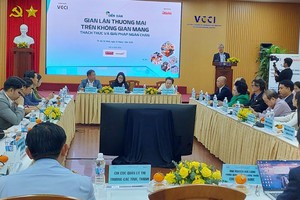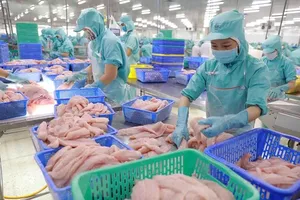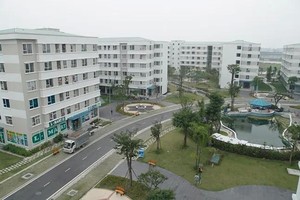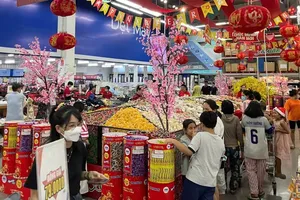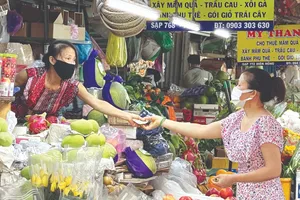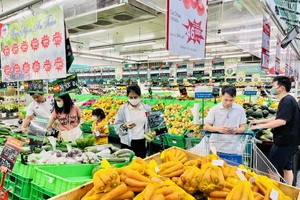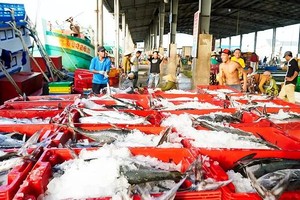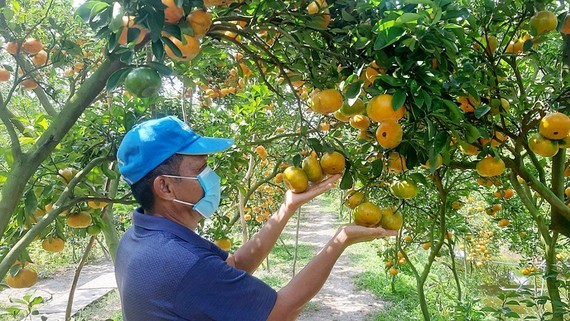
Deputy Director of the Agro Processing and Market Development Authority (under the Agriculture and Rural Development Ministry) Le Thanh Hoa shared that each market has its own criteria for and selection of produce imports.
In particular, the Chinese market favors mangoes, longans, lychees, dragon fruits, watermelons, bananas, rambutans, jackfruits, and mangosteens. However, the EU market prefers canned tropical fruits and juice. The markets of Japan, Australia, New Zealand love dragon fruits, mangoes, lychees, rambutans; while the US market is fond of grapefruits, mangoes, star apples, rambutans, longans, lychees, dragon fruits.
The US now occupies the largest exported produce market share in Vietnam, followed by China, Japan, and the Republic of Korea (RoK). Each of them has its own technical barriers to trade.
For instance, picky markets of the US, Japan, RoK, Taiwan, New Zealand, Australia, Chile, and Argentina require exported produce to meet their technical criteria and has a traceability system (codes of growing area, packing company, agro-product processing manufacturer). They send their own technicians to Vietnam to examine each cargo before export.
EU markets of the UK, Belgium, Holland, Denmark, Spain, and Italy request that exported produce must meet extremely high standards of plant quarantine and food safety to get a certificate before customs clearance. Any violations will receive a warning, and those cargoes will be sent back to the place of origin, or destroyed, along with a temporary halt of import.
ASEAN countries like Thailand, Malaysia, Indonesia, Laos, Myanmar, Singapore, the Philippines, or Middle East nations, East European nations, India, and Canada only need phytosanitary certificates.
To satisfy the requirements of various international markets, the Plant Protection Department informed that it is accelerating the issuance of codes of growing area, packing company for those in need in all provinces. Until now, 3,646 growing area codes, 1,798 packing company codes have been delivered so that they can export fresh fruits to other countries.
Vietnam Sanitary and Phytosanitary Notification Authority and Enquiry Point (SPS) also warns that since many nations tend to continuously change their requirements on food hygiene and safety, farmers and agro-businesses need to actively update this information to maintain their international market share. For example, the European High Commissioner for Health is prohibiting imports containing Neonicotinoids, easily found in pesticides like Clothianidin and Thiamethoxam.
Pesticide residues in imported produce is an important criterion of global markets in the near future, along with produce quality, hygiene and food safety. Therefore, farmers and agro-companies need to be well-prepared to pass theses technical barriers.
Head of the Plant Protection Department Hoang Trung informed that besides popular produce exports such as mangoes, longans, lychees, dragon fruits, watermelons, bananas, rambutans, jackfruits, pineapples, star apples, and mangosteens, the Agriculture and Rural Development Ministry is negotiating with other nations for more fruit kinds like passion fruits, sweet potatoes, durians.
The only matter left is a strong collaboration between farmers and agro-businesses to form a large fruit farm, strictly observing VietGAP, GlobalGAP standards in fruit growing to satisfy even the pickiest markets. Also, the situation of faking growing area codes in exports must be eliminated since it could harm the reputation of Vietnamese produce.











